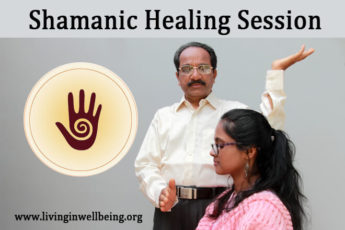
Some fear that if we accept ourselves as we are, that we will have no motive to improve ourselves.
There is a small possibility that self-acceptance might cause a few people to loose interest in self-improvement. In most cases, however, it opens the door towards natural change and self-betterment.
Contrary to what many think, self-acceptance is usually a prerequisite to moving beyond aspects of our selves which we would like to leave behind.
It is as if that aspect which we want to change is another person whom we are rejecting and asking to be different. They will usually resist and become even more deeply entrenched in the behaviors we would like to them to change.
The same seems to happen when we reject aspects of ourselves. Those tendencies or "sub-personalities" tend to resist letting go of their ways of functioning and behaving. Thus, we often delay our freedom from such undesired habits or characteristics when we reject them or ourselves for having them.
Say for example, we smoke or eat or drink too much. Or we might tend towards aggressiveness, jealousy, anger, fear or other unwanted emotions. We might prefer to be more assertive and dynamic in achieving our goals.
Rather than reject ourselves for what we would like to change, a much more effective approach is to:
1. Accept that undesired aspect of ourselves as a natural evolutionary response to the various stresses, disappointments, difficulties, and challenges we have encountered until now in our lives. We have developed these habits and tendencies as an attempt to "protect" our selves from "dangers" or to "relax" from our tensions.
2. Learn to understand these aspects of our being. They are parts of us, which deserves our love and acceptance as it is. We need to understand what those parts of ourselves are actually seeking through those behavior. They might be seeking security, affirmation, freedom or perhaps release of tension.
Our "aspects" or sub-personalities can search for security in money, food, relationships, sex, smoking, coffee or even through conflict. We have been programmed to doubt our security and self-worth and to fear for our freedom and to seek them at times in strange and sometimes self-destructive ways.
Thus the second step is to understand these parts of ourselves and realize how they feel and what they need.
3. The third step is to begin to reeducate these parts of ourselves and help them understand what is really in their benefit and how they can achieve real security, self-worth, freedom and fulfillment. This might take the form of a dialogue with that aspect of ourselves in which we listen to its needs and then explain how we perceive our lives and share our goals and needs. We can write a dialogue between these two parts of our being - the one who wants to keep on with its habits and the second which wants to move on to other ways of behaving. They can each express to each other their: a. Needs b. Feelings c. Beliefs d. Goals.
This can also be done by setting up two chairs and creating a verbal exchange in which we speak alternatively for each part of ourselves as we change positions sitting in each chair as we change perspective and seek to feel and express that aspect of ourselves.
4. The fourth step is to take the position of our higher wiser self and speak to both parts of ourselves. Both the part, which wants to the change and the one, which does not, are equally aspects of our being. They are like our children and they need to be accepted and loved as they are. They need to be helped to love harmoniously in the same body and mind.
5. In the end we need to understand that our true being is not limited to either of these aspects. We are something much greater.
This mutual inner acceptance and communication between these conflicting aspects our being opens the door to a type of inner cooperation which brings about a much more effective and lasting change than can ever be accomplished through self-rejection and conflict.
The same is obviously true about our need to change others. We can get much better results if we accept and understand them and their needs and then express our needs in an atmosphere of mutual understanding and respect.
As for the fear that we might relax too much and not move forward if we accept ourselves, we would do well to remember that all of nature seeks to evolve. Our inner being naturally seeks to evolve. This is our basic inner need. We are all driven by an inner pressure towards perfection. How else can we know that we do not have perfect love or justice, unless we have an inner frame of reference.
We want to create health, harmony, peace and love in our lives because these remind us of out true inner self. These are who and what we are.
No matter how much we accept ourselves we will always want to move towards that manifestation of our inner potential.
We need to externalize our inner beauty. Loving and accepting ourselves is the first step towards that.
Many people believe that they must be dissatisfied with themselves, or that they must reject themselves, or feel guilt or shame in order to have a motive for self-improvement or growth. They wonder, «If I accept and love myself as I am, what motive will I have for continuing to change, grow or improve? "
Accepting ourselves, as we are, is not a deterrent to continuing our efforts to learn, grow and improve ourselves. We can easily accept ourselves and still continue to improve our character and increase our knowledge.
The First Grader
Perhaps the example of children in grade school will help us to understand this. These children in the first grades of grade school do not reject themselves because they are not in a higher grade, or because they do not know as much, or are not as capable as those children in the higher grades. They accept themselves as they are, and are happy with themselves with their present level of abilities and knowledge.
Yet, no child would accept remaining in the same grade the next year or year after year.
In the same way, there is no conflict between accepting and feeling comfortable with our temporarily limited abilities and lower level of conscious, and our need to continue growing. It is natural to accept and love ourselves at his present stage of growth and simultaneously to attend to learning, evolving and improving ourselves
Growth is a natural instinctual need. Scientists have discovered that when a person learns something new, this creates the excretion of endomorphines and other positively reinforcing chemicals in the brain. Learning brings pleasure, when it is natural and not connected to fear of rejection and failure.
But there are yet other motives for action and growth, and these are love and the need for creativity. We need to love and to create, just as we need to sleep and eat. These are basic needs, even if they are higher on the need-hierarchy scale.
Thus, even if we do not have self-rejection or dissatisfaction as a motivating force, we will always have love and creativity as motivating forces to grow, create and produce.
Let us grow naturally without fear or self-doubt.
Article Source : http://www.articlesbase.com/coaching-articles/selfacceptance-and-selfimprovement-40135.html












